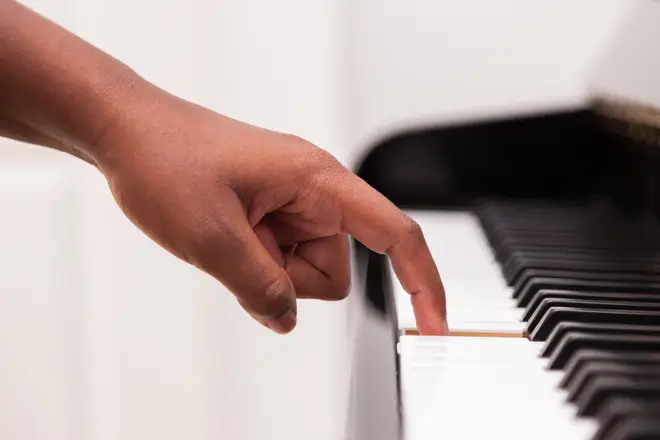On Air Now
Calm Classics with Myleene Klass 10pm - 2am
6 December 2022, 16:06 | Updated: 6 December 2022, 16:08

Ingolf Wunder - Chopin Nocturne Op.9 No.2
Playing the piano benefits your brain in a multitude of ways, according to a new study…
A new study has found that playing the piano improves the brain’s ability to process sights and sounds, and can boost your mood.
Researchers at the University of Bath placed 31 adults in a randomised control study, and separated them into three groups: music training, music listening, and a control group.
Beginner pianists with no prior musical training undertook weekly, one-hour piano lessons over a period of 11 weeks. The second group listened to music for an hour, while the third used the time to read and study quietly.
After just a few weeks, the beginner pianists reported significant improvements in recognising audio-visual changes in the environment and reported less depression, stress and anxiety.
One of the authors, Dr Karin Petrini said: “We know that playing and listening to music often brings joy to our lives, but with this study we were interested in learning more about the direct effects a short period of music learning can have on our cognitive abilities.”
Read more: Scientists say this major piano chord can help cure nightmares

For the beginner pianists, the weekly lessons began with 20 minutes of finger exercises, followed by 40 minutes of studying pieces on the 2017-18 ABRSM piano Grade 1 exam list.
They were taught the following pieces, in order: William Gillock’s A Stately Sarabande, Classic Piano Repertoire (Elementary), J.C. Bach’s Aria in F, Verdi’s ‘La donna è mobile’ (from Rigoletto), Bryan Kelly’s Gypsy Song: No. 6 from A Baker’s Dozen and, finally the traditional American folk song, ‘When the Saints Go Marching In’.
Participants learned to play the songs one at a time, moving onto the next in the list once they had an accurate grasp of the first.
By the end of the 11-week period of musical training, the participants had reduced depression, anxiety and stress scores.
The benefits also reached beyond music, with those who had piano lessons reporting that their audio-visual processing had become more accurate across non-musical tasks. They also displayed greater accuracy in tests, where asked to conclude whether sound and vision ‘events’ occurred at the same time.
Read more: Rats have capacity for rhythm and can keep time to Mozart works, new study reveals

Evan Le performs stunning Mozart Piano Sonata
Petrini added: “Learning to play an instrument like the piano is a complex task; it requires a musician to read a score, generate movements and monitor the auditory and tactile feedback to adjust their further actions.
“In scientific terms, the process couples visual with auditory cues and results in a multisensory training for individuals.
“The findings from our study suggest that this has a significant, positive impact on how the brain processes audio-visual information even in adulthood when brain plasticity is reduced.”
The results, published in the journal Nature Scientific Reports, show that those who learned the piano improved their ability to process multisensory information – an improvement which was not found in the music listening group or the control group.